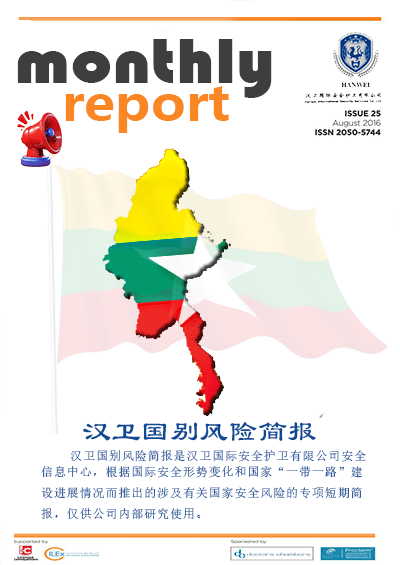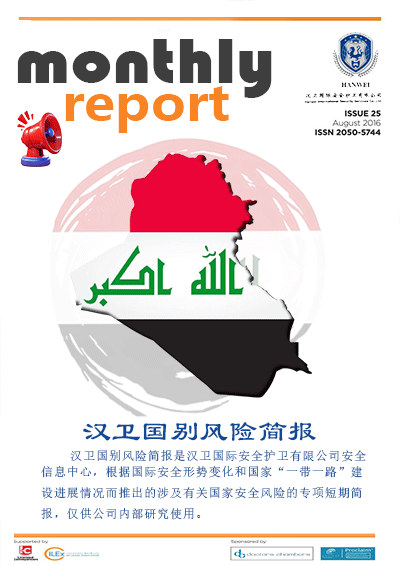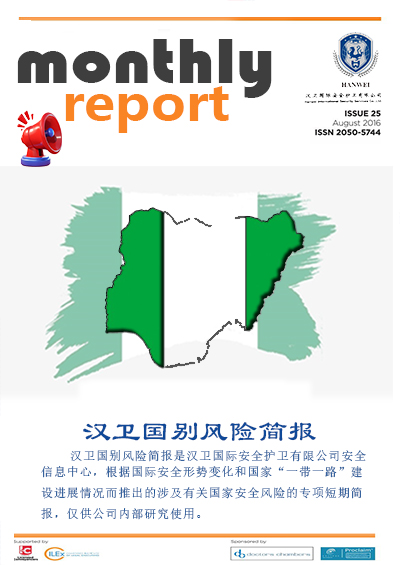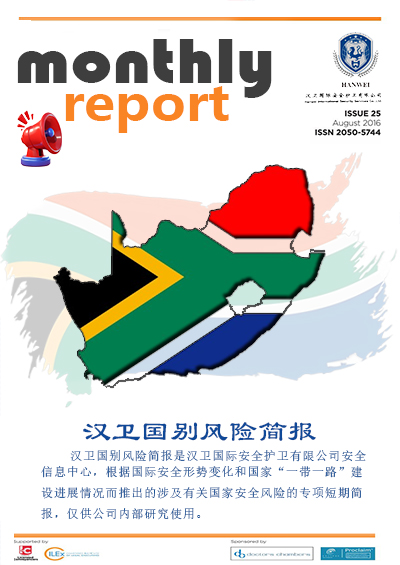South Africa Security Situation Review: October 2024
Researcher No. 006
According to monitoring reports from Hanwei International's security officers stationed in South Africa and comprehensive media coverage, our organization has documented nearly 100 various security incidents, with frequent occurrences of shootings, extortion, kidnappings, and theft/robberies. Furthermore, the underlying turbulence in domestic political and economic conditions poses significant threats to the safety and property of Chinese citizens and employees of Chinese enterprises in South Africa.
1. Large-scale protest demonstrations erupted across various sectors in South Africa this month, causing significant social impact.
Key Protest Incidents Monitored by Our Organization: In addition to nationwide demonstrations, the majority of protests were concentrated in Gauteng and KwaZulu-Natal provinces. October 1, 2024 Update: Nearly 1.3 million public sector workers—including teachers, nurses, and police officers—are demanding a 12% wage increase, sharply contrasting with the government's proposed 3% raise. South Africa faces a critical labor negotiation crisis as these employees escalate their demands to include: Housing allowance increase of ZAR 2,500 per person, Hazard pay doubling to ZAR 1,000, Performance bonuses, Child scholarship programs, Permanent employment status for education assistants, community health workers, and reservists, The South African Finance Minister has stated that the government is considering measures to curb salary growth, aiming to address rising public sector wage expenditures.
South Africa is currently grappling with severe inflationary pressures, with continuously rising costs of food, fuel, electricity, and other essential living expenses. Workers at Transnet, the state-owned ports and rail operator, have expressed strong dissatisfaction with the company's initial wage proposal. Consequently, the South African Transport and Allied Workers Union (SATAWU), representing a portion of Transnet's workforce, was the first to declare a strike on October 6. This was followed by members of the United National Transport Union (UNTU) joining the strike on October 10. Together, these two unions represent approximately 48,500 Transnet workers, accounting for about 86% of the company's workforce. The strikes have severely disrupted normal operations at multiple ports, posing significant threats to bulk transportation and causing substantial impacts on export-related industries, supply chains, and associated economic sectors.
On October 7, the South African Federation of Trade Unions (SAFTU) organized large-scale protest demonstrations at several key economic locations in Johannesburg, Gauteng Province (see Figure 1), drawing widespread societal attention. Thousands of union members flooded into Sandton's financial district, vocally protesting against pressing issues such as poverty, income inequality, and record-high unemployment rates.
On October 30, reports indicated that the city center of Durban in KwaZulu-Natal Province was paralyzed due to road blockades by long-distance taxi operators protesting against the authorities. For several consecutive days, major roads in areas such as Greyville and Umgeni were blockaded and declared "no-go zones." This action was reportedly in response to the police's "Operation Lightning," which led to the impoundment of multiple long-distance taxis across KwaZulu-Natal Province.

Figure 1: Protesters March to Johannesburg Stock Exchange
2. Multiple High-Profile Shooting Incidents Trigger Widespread Community Panic This Month
Our agency has documented shooting incidents this month resulting in at least 45 fatalities, primarily concentrated in Gauteng, KwaZulu-Natal, Eastern Cape, and Western Cape provinces. On the evening of September 27, 2024, a severe shooting occurred in Ngobozana village, Lusikisiki, Eastern Cape, ultimately claiming 15 female and 3 male victims. Police confirmed these 18 victims were shot dead inside two residences, with only a 2-month-old infant surviving. By October 16, all four suspects involved had been apprehended (see Figure 2), though the firearms remain at large.
On October 13, seven individuals including a 3-year-old boy were fatally shot in a Gauteng township before the perpetrator committed suicide. The tragedy originated from a dispute when a customer, denied alcohol after closing time, argued with the tavern owner who later stalked and ambushed the customer's household.
October 19 saw another family massacre in Eastern Cape where five family members were executed during a nighttime home invasion, though two injured children escaped to alert neighbors. On October 23, a Western Cape shooting in Atlantis left five dead and five critically wounded. Police confirmed victims were ambushed returning from an outing, with three vehicles targeted in what appears to be gang-related violence.
3. Chinese Business Community Faces Extortion Threats Amid Deteriorating Business Climate
October 8 - Seven officers from SAPS Public Order Policing Unit were arrested for allegedly extorting Chinese shops in Cape Town. The uniformed officers reportedly used police vehicles to demand "protection money" totaling ZAR 28,000 from two Chinese businesses in Milnerton. Sources indicate local Chinese merchants have historically tolerated such police extortion due to fear of retaliation.
October 5 - Prominent singer Nathi Mankayi canceled his Mthatha concert after organizers received protection money demands, expressing shock at the extortion attempt.
October 10 - Eastern Cape Crime Intelligence intercepted extortionists targeting Ngqamakhwe businesses, resulting in a shootout that left one suspect dead.
Cape Town's Hout Bay has become an "extortion hotspot," with delivery personnel paying ZAR 500 monthly protection fees under death threats. One courier stated, "We've witnessed non-payers being murdered."
4. Public Health Emergencies Threaten Lives and Property October 12 - Failed sewage treatment plants are discharging untreated wastewater into the Vaal River, creating a pollution crisis coinciding with a cholera outbreak. The Department of Water and Sanitation warned riverside communities from Christiana downstream against consuming untreated water.
The South African Weather Service predicts extreme summer storms for northern regions. October 15 - Johannesburg experienced severe flooding, stranding motorists. October 22 - Nelson Mandela Bay's torrential rains displaced hundreds and caused electrocution deaths (see Figure 3).
On October 27, six masked assailants armed with rifles and pistols stormed a traditional ceremony near Escourt, KwaZulu-Natal, killing five and wounding one. Recovered evidence included: two AK-47 assault rifles (115 rounds), two pistols (12 rounds), one special revolver (1 round), and a getaway vehicle.
Hanwei International Security Recommendations for Chinese Enterprises and Nationals in South Africa:
1. Maintain Constant Awareness of Protest Information and Implement Proactive Security PreparationsRecently, large-scale protests and demonstrations have broken out in various parts of South Africa, mainly in Gauteng Province and KwaZulu-Natal Province. It is recommended that Chinese people in South Africa stay informed about the relevant information in advance, stay away from the protest and demonstration sites to avoid violent conflicts. At the same time, for events that affect daily life, such as road closures, they should make preparations in advance and keep various emergency supplies at home. Meanwhile, Chinese business people in South Africa should also stay informed about the relevant information in advance to avoid large-scale protest and strike events affecting the normal operation of their enterprises and subsequent possible chain reactions, such as delayed delivery of goods and failure to complete projects within the contract period.
2. Enhance safety awareness and master self-rescue measures in case of danger.South Africa is plagued by a severe problem of gun proliferation, with a large number of illegal firearms. Besides historical legacies, the loss and theft of police firearms and their subsequent entry into the illegal market are also significant factors. Relevant data shows that approximately 1,800 firearms are lost or stolen each year in South Africa. Moreover, the proportion of incidents involving armed threats rose from 57% in 2023 to 62% in 2024. The Western Cape Province has become a hotspot for crimes such as kidnapping and gun violence. Therefore, Chinese citizens in South Africa must be well-versed in self-rescue measures. For instance, before traveling, they should obtain information on local social security conditions through official channels such as the Chinese Consular Service Network and the Chinese embassies and consulates in South Africa, and avoid areas prone to criminal activities. They should also avoid passing through sparsely populated, undeveloped, or gang-infested areas. It is advisable to avoid traveling at night, especially in areas with poor security. In case of danger, they should remain calm, avoid direct confrontation, and promptly report to the police and seek assistance from the Chinese embassies and consulates in South Africa, the South African Chinese Police and Community Cooperation Center, and other relevant organizations. They should also cooperate with the investigation and handling by the relevant departments.
3. Enhance hygiene awareness.With the severe cholera epidemic in neighboring countries of South Africa such as Zambia and Zimbabwe, and the domestic water resources being polluted, this has brought huge pressure to the epidemic prevention and control in South Africa. It is recommended that the public pay attention to personal hygiene. Keeping hands clean is the key to preventing cholera and maintaining body cleanliness. Ensure the safety of drinking water. Do not drink untreated tap water or water from other sources directly. Avoid taking water from potentially polluted rivers, lakes, ponds and other sources, such as the already polluted Var River Basin. Recently, South Africa has been hit by a strong storm. It is recommended to keep an eye on the disaster warning information issued by the local meteorological department and government at all times. Families or communities should make emergency plans, especially for residents living in low-lying areas, to avoid attempting to drive across rivers or waterlogged areas in heavy rain.




